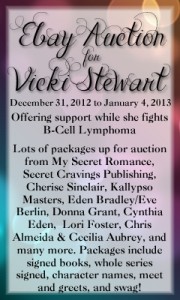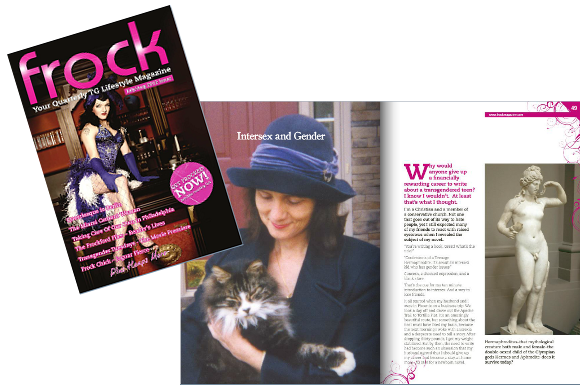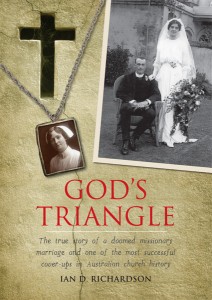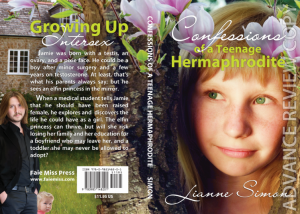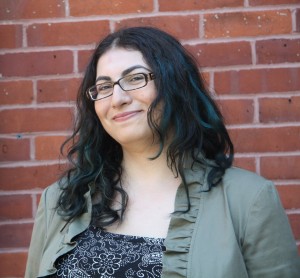This giveaway is associated with the Heroines With Heart book tour. My book is one of those being featured in January.
Category Archives: Uncategorized
I Write Like
I Write Like is software that analyzes an author’s writing. I found the results to be mildly amusing.
Charity Auction!
Frock Magazine Article
One of the things I love about MuseItUp Publishing is their editors. They’re some of the best in the industry, and are also committed to seeing their authors succeed. So it was no surprise when my content editor, Tanja Cilia, approached me about writing something for an online magazine.
Frock Magazine caters to the transgender community. I have to confess that my first thought was that if I were to write something for them, I’d get grief from both my intersex friends and my Christian friends. So, at least for a while, Tanja was more enthusiastic than I was.
Confessions of a Teenage Hermaphrodite is the coming of age story of a teen who was born with one testis and one ovary. In Jamie’s case, the sex-of-rearing decision was fairly arbitrary. The main theme of the book is Jamie’s struggles to fit in as one gender or the other. The story is set in the early 1970s, a time when most people still thought of gender strictly in terms of boy or girl.
My first impression of Frock Magazine was its outstanding production quality. Definitely first rate. After corresponding with Katie Glover, Frock’s friendly editor, I agreed to come up with something a bit lighter and less technical than what I’d ordinarily write. I hope you’ll hop on over to their site and read it.
To my friends who may object–One reason I wrote Confessions was my concern for intersex children who struggle to find their place in this world. Sometimes gender issues are a result of a disorder of sex differentiation (DSD). Sometimes they’re a result of inappropriate DSD treatment. In any case, the real question is how to help them. The readers of Frock Magazine are likely to at least have some understanding of and sympathy for the gender issues these children encounter.
Intersex and Gender Article
or you may subscribe to Frock here.
Ian Richardson – God’s Triangle
Today’s interview is with Ian Richardson, the author of God’s Triangle. Thank you so much for agreeing to do an interview, Ian.
How long have you been writing?
I have always loved writing. My first “professional” writing was in my early teenage years when I would earn a dollar a time writing to magazines with Letters to the Editor. When I turned 16, I had to leave school to help my father, who was dying, with his rural newspaper in Australia. He let me write some of the news items and that was the real beginning to my career.
What do you like the most and least about the craft?
I like everything about writing.
What genre do you generally write?
Having worked for more than 25 years as a journalist for the British Broadcasting Corporation (BBC) in London, I have learned to turn my hand to anything. In recent years I have concentrated on screenwriting. God’s Triangle is my first book.
Tell me about God’s Triangle. How did it start? At what point did family history become a book?
The story of God’s Triangle began in 1997 during a visit to Australia to see my mother. We were sifting through old family photographs and I spotted a tallish woman I had never seen before. My mother evasively dismissed her as “just Aunty Florrie Cox”. She added: “The family didn’t talk about Florrie”. She couldn’t tell me why, except that Florrie had been a missionary in India and that her marriage to another missionary had failed because of an affair her husband had with a third missionary.
My curiosity was excited, but initially my enquiries were simply to fill in a gap in the Cox family history. As more and more information was revealed over the years, I felt it would make an excellent feature film. An Australian movie producer agreed. It was then that I came up with the name God’s Triangle because the three main characters were committed Christians.
My wife and assistant researcher, Rosemary, felt I needed to assemble a detailed historical record of what had been discovered. From that emerged the book.
Your aunt had an unusual medical condition. How did you discover what it was? What did you think when you first became aware of it? Did you do any research?
When Rosemary and I began the research, we had no idea what we might find. All we had for several years was the assertion by the son of my great aunt’s ex-husband that the marriage had broken down “because your aunt never told my father she couldn’t have babies”.
The first real clue to Florrie Cox’s condition was revealed when I won an 18-month battle with the Supreme Court of Victoria, Australia, to gain access to the divorce records which had been marked “closed for all time”. A medical specialist in London read the file and was able to identify her precise condition.
How much did your aunt know? Does her condition play a pivotal role in her marriage problems?
My aunt never knew what was wrong with her, except in the most general terms. She grew up in a very religious Protestant family in an age when sex was a totally taboo subject.
It was also a time when unmarried couples were not allowed on “dates” without a chaperone to ensure that they didn’t exchange anything more than a hug or a chaste kiss or two.
The first Florrie knew that something was wrong was on her honeymoon when she and her husband, the Reverend Frank E. Paice, discovered they were unable to have intercourse. The marriage never recovered from that.
Florrie went to her grave in 1950 thinking she was some form of freak, getting little support from her embarrassed family or from the equally-embarrassed Baptist Church in Australia. Her actual condition was not given a name until after she died.
What will the reader learn about intersex from your book?
A lot, I would hope. Above all, understanding and tolerance. Sympathy, too, but not pity.
The promotion of God’s Triangle for the general public has deliberately avoided revealing that Florrie Cox had a very rare intersex condition. There are two chief reasons: it is a true-life detective story and it would be unfair for the general reader to know about Florrie’s condition at the outset. More importantly, I wished to avoid her being pre-judged. I wanted to lead readers along that same path that I took so that they would develop the same understanding that I had.
Without wishing to appear pompous, I feel that God’s Triangle – both the book and ultimately the film – will result in intersex in all its variations being viewed as just a part of mainstream society, rather than a condition to be regarded with suspicion.
I spent a year in Asia on a missions trip, but I’m sure it was much different from missions during the time covered in your book. Tell us a little about that if you would.
Yes, things have certainly changed since my great aunt was a missionary. Back then, they believed they had a God-given right to attempt to convert the entire non-Christian world to Christianity, regardless of the consequences for themselves or their converts. They were well-intentioned but very misguided, in my view.
My view is that “doing good” should not be tied to a conviction that the recipients should respond by “taking Jesus into their hearts”. Most Christian aid workers these days are what I call “Christians by example”, rather than evangelists. They help those who need help, but expect nothing in return but a few words of thanks and the satisfaction of knowing they have contributed to the betterment of global society.
How can someone purchase your book in the US?
God’s Triangle can be purchased online through http://godstriangle.com/. The British price converts to about $US17.50 at the current exchange rate. Delivery to US addresses usually takes less than two weeks.
The ebook is also available on Kindle through Amazon:
http://www.amazon.com/dp/B0085XM9IK
What are you currently working on?
Making sure God’s Triangle is a success and that the film version gets made as soon as possible.
What do you do for fun and relaxation when not writing?
Family things, swimming, trying to put the world right and gossiping with my journalist mates.
Which authors do you like to read?
I love Bill Bryson.
Do you have any tips for aspiring authors?
Yes. Keep at it, but don’t be precious about your work. No matter how wonderful your writing is, a good editor will always improve it.
Is there anything else you’d like us to know about you?
I have told my producer in Australia that I will refuse to die until I see the film version of God’s Triangle on the screen!
Thank you!
Advance Review Copies
Why is it that you always find another error just after you send off the manuscript? A glaring, in-your-face-something that you messed up? I guess that’s what proofs are for. At least this time it was only two minor formatting issues.
I had used LibreOffice(OpenOffice successor) to generate my manuscript PDF, with embedded fonts and all. I used Gimp to do the cover artwork, but eventually found a copy of PhotoShop I could afford. It’s better at converting to CMYK than anything else I’d tried.
Uploading the internal document and cover artwork went without a hitch. In a few days, my printer sent me a proof. The ARCs (advance review copy) should arrive shortly.
I continue to work with my e-book publisher on line and copy editing. We’re still planning a September release of Confessions of a Teenage Hermaphrodite. Meanwhile, I’m sending out advance copies to anyone I can find who does reviews.
Leah Bobet Interview
This is the first in what I hope will be a series of interviews with authors who have written about intersex characters in their novels. Today I’m interviewing Leah Bobet about her book, ABOVE.
Thank you so much for being here, Leah.
Thanks for having me!
How long have you been writing?
I’ve been writing for publication for ten years — since I was 19. There’s a whole trail of short fiction out there, in both print and online magazines going back to 2002, that’s pretty much the story of me figuring out what I wanted to say and how I could best say it.
What do you like the most and least about writing?
The most? The way it feels when you’re about half an hour into writing a scene when it’s working, really working, and your body almost ceases to exist. There’s nothing in the world but you and the words, and this little tingle in your fingers to connect them.
The least? This may sound precious, but…not writing. My process is fairly finicky and I will get months-long dead spots, where I just don’t have anything to say and can’t put pen to paper (or hands to keyboard, as the case may be). The only real solution’s to wait. I, as a general rule, hate waiting.
What genre do you write?
Several, actually — and then some things that live at the intersections of a few genres. ABOVE’s been described as an urban fantasy, a dystopian, a paranormal; my own description’s usually that it’s a literary novel if you squint one way and a fantasy novel if you squint the other way. I’ve also recently published short fiction that was the-bastard-child-of-CanLit-and-Stephen-King-horror-with-bonus!-political-commentary, and serious-relationship-fiction-but-oh-hey-there’s-witches, and ridiculous-gonzo-religious-humour-with-puns.
So to give a perfectly complicated answer to a perfectly simple question: genre’s one of the places I tend to play. There’s usually elements of two or more of them in anything I write.
Tell me about ABOVE. What’s your hook? Where can I find a copy?
ABOVE is about Matthew, who’s loved Ariel from the moment he found her in the tunnels, her bee’s wings falling away. They live in Safe, an underground refuge for those fleeing the city Above—like Whisper, who speaks to ghosts, and Jack Flash, who can shoot lightning from his fingers.
But one terrifying night, an old enemy invades Safe with an army of shadows, and only Matthew, Ariel, and a few friends escape Above. As Matthew unravels the mystery of Safe’s history and the shadows’ attack, he realizes he must find a way to remake his home—not just for himself, but for Ariel, who needs him more than ever before.
The book comes out March 1st in Canada, April 1st in the US, and it’ll be available pretty much everywhere you find your books: online, in chain bookstores, and in independents.
One of the main characters in ABOVE is intersex. Would you tell us a bit about the character, the condition, and the research you did?
It’s about half of a major plot point, so I’d rather not reveal too much about the character hirself.
A lot of the foundational research came from discussions with a friend who’s a paediatrician, who deals with gender assignment choices for intersex children in a very real, hands-on, everyday way. Talking to her about it was what first highlighted the topic for me, and general online reading covered most of what I needed for what is essentially a character background, filtered through the perspective of a narrator who doesn’t know much about the condition himself.
Does the character’s condition play a pivotal role in their character arc?
It’s both entirely central to why events play out as they do, and entirely peripheral: the character in question’s motives and emotional reflexes were entirely made by how people — first at home, and then in the world, and then in Safe where sie found hirself — reacted to hir being intersex. It’s the entire reason sie reacts in certain ways to other people’s choices, and those reactions drive the plot.
But in another sense, it’s a character background like any other; the kinds of fears and hopes that spring out of it could spring out of other places (and do, in some of the other characters in Safe!), and the ultimate choices sie makes, as well as the consequences for them, have to do with a whole other condition that character has, and a whole other relationship dynamic.
What will the reader conclude learn about intersex from your character?
While that’s up to the reader entirely, I doubt they’ll learn much in depth specifically about intersex. What I’m hoping they’ll learn, though? That it’s just a thing, like many other things, and that treating people according to their parts or conditions or diagnoses in general is less good than treating them as people. Which sounds like it should be a simple thing to learn, but we do tend to have trouble with it.
What are you working on?
An odd little book about a sixteen-year-old girl on a post-apocalyptic farm, whose brother-in-law hasn’t come back from the war, the mysterious veteran they hire on to help run the land through the winter, and all the trouble that brings down on their heads.
What do you do for fun and relaxation when not writing?
A terrible lot of things! I am sort of a halfway house for hobbies: I knit, watch silent movies, go on adventures with my friends, run scavenger hunts, bellydance, bake bread, and I’m ridiculously into urban agriculture, indie music, and Toronto municipal politics. A friend’s talked me into picking my guitar back up too, so…
Which authors do you like to read?
Oh, I’m a total omnivore. I will read nearly anything, and after working in a bookstore for four years (where reading new authors was my job!) I have a habit of aggressively hunting down first novels and authors I’ve never read before.
I will always read a new Nalo Hopkinson novel, or a new David Mitchell, or a new China Mieville. There are a bunch of local-to-me authors I will always read: Peter Watts, Caitlin Sweet, David Nickle, Zoe Whittall, Catherine Bush, and most of what Coach House Books puts out. But the rest is variable: I’m always more interested in the author I haven’t discovered yet.
Do you have any tips for aspiring authors?
I heard a wonderful piece of writing advice the other day, from author Charles Coleman Finlay, which seems to sum up all the other writing advice in one sentence: “Find your own way forward with joy and discipline.”
Deep down, everyone has a sense of what might work for them and what might not. Learning to write is less a driving test than an exploration. Explore, find your own process with diligence, and enjoy it. It’s no good if you’re not having some fun.
Is there anything else you’d like us to know about you?
Just that I hope you like the book!
Thanks!
MuseItUp Publishing contract!
Two days before Christmas I found an e-mail in my stocking, offering me a contract with MuseItUp Publishing for my debut novel, Confessions of a Teenage Hermaphrodite. After I executed a perfect pirouette and did my best Happy Feet impression, the elven princess suggested I actually think rationally about whether or not to accept their offer.
My husband, being an accountant, and the most stable member of the family, suggested we talk it over, sleep on it, and most importantly, pray about it. We did. At two in the morning, on December 31st, I returned the signed contract.
The e-book release of Confessions of a Teenage Hermaphrodite is scheduled for September of this year.
I am so excited to be working with MuseItUp, their editors, and their other authors.
FaieMiss Press will be publishing the paperback.
Sample chapters may be found here.
My thanks to Youkosilvara, Look Into My Eyes, and iStockPhoto for the images from which the cover concept was built.
Introduction
Over the past decade, I’ve answered inquiries on behalf of a support group for the parents of children born between the sexes. However, as the Internet has grown, so have the options available. The Androgen Insensitivity Support Group (www.aissg.org), for instance, accepts girls with various differences of sexual development. With groups like AISSG flourishing, my time can be put to better use elsewhere.
In addition to working with intersex children, I’ve had the privilege of making the acquaintance of a number of intersex adults. As a Christian, I was disturbed by the lack of understanding on the part of the Church for people born outside the normal boundaries of male and female. The kids aren’t a part of anyone’s ‘agenda.’ Even when they have gender issues related to their condition or the treatment they’ve received.
In the summer of 2010, when my husband and I were visiting Phoenix, I woke one morning with an idea for a story about an intersex child who has treatment-related gender issues. Since then, the Lord has given me the opportunity to devote myself full-time to writing (and learning to write!).
Faie is a novel about a child who moves from a sheltered home-school environment to a boys’ dorm at a large university. The sixteen-year-old was born with a genetic condition resulting in short stature, a pixie face, and a sexually ambiguous body.
After numerous revisions, the novel is nearing completion, allowing me a bit more time to spend on blogging. I’m hoping to start posting on a regular basis now.


